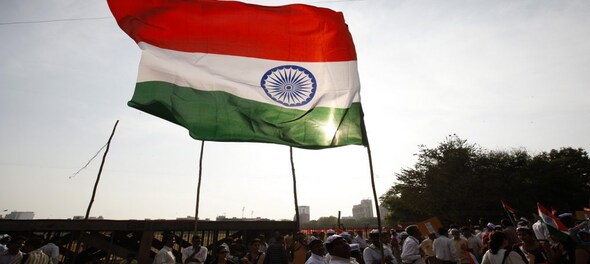
It is that time of the year when the nation, across government departments and public sector undertakings (PSUs), are directed to observe the Vigilance Awareness Week beginning October 31, which is the birth anniversary of Sardar Vallabhbhai Patel.
It is a sad reflection that we must observe a week to be made aware that corruption is bad and needs to be weeded out. Corruption, unfortunately, is an ugly reality of life in India. Nothing exemplifies this more than the candid statement in the very first line of the mandatory pledge prescribed by the Central Vigilance Commission (CVC) — "I believe that corruption has been one of the major obstacles to the economic, political and social progress of our country". This year’s theme for the week is, "Say NO to corruption; Commit to the Nation".
Corruption hurts the country. It eats into its vitals. As per the United Nations Office for Drug Control (UNODC), corruption, bribery, theft, and tax evasion, and other illicit financial flows cost developing countries $1.26 trillion per year. Professor Arun Kumar, who has written extensively about black money in India, has suggested that the extent of the black economy in India is estimated to be 62% of the GDP — generating (ay 2016-17 levels) about Rs 93 lakh crores. This is nothing but a reflection of a lack of integrity and corruption at its most basic level. Thus, it hurts development. A developed country by definition has a high quality of life, a developed economy, high gross domestic product per capita, industrialisation, and advanced technological infrastructure. Another measure of development is the Human Development Index (HDI), which combines both economic and social measures. This criterion defines developed countries as those with a very high HDI rating.
That is the measure used in the June 23, 2000, letter issued by the then Chief Vigilance Commissioner, when the concept of a Vigilance Awareness Week was first mooted. The letter mentions the UNDP Report on Human Development, 1999, on South Asia, which states that if the corruption level in India goes down to that of Scandinavian countries, the GDP will grow by 1.5% and FDI will go up by 12%. The letter goes on to say that corruption is anti-national, anti-poor and anti-economic development and that India has been ranked 73 out of 99 countries in the Corruption Perception Index.
It would appear that very little has changed. As per the HDI Report for 2023, India is ranked at 132 out of 191 countries. And as regards the Corruption Perception Index we have fallen to 85, with a score lower than the global average.
It is against this backdrop that we need to frame the theme of this year’s Vigilance Awareness Week. How do we commit ourselves to the nation and weave it with the vexatious question of how we fight corruption? The theme "Say No to corruption", has built into it the assumption that you can do so because you have integrity. Integrity the dictionary will tell you is adherence to moral and ethical principles. It will tell you it is a state of being whole, entire, undiminished. Every time you do an unethical act you reduce yoursel—-you are lesser than what you were.
How, then, do you develop integrity—in yourself and in others? Education with an emphasis on values is a key requirement. On a larger, macro level, transparency and democracy are vital antidotes to corruption. The preamble to the Right to Information Act, a major weapon against corruption, puts it succinctly, highlighting the need for an informed citizenry and transparency of information as being vital to the functioning of democracy and holding governments and their instruments accountable to the governed. We also should also actively encourage the citizenry to use the Whistleblowers Protection Act. Neither of these are panaceas, but they can make being corrupt a little bit difficult.
It is imperative that laws are clear and unambiguous. Compliance requirements and procedures should be simplified. The tendency of policymakers to stipulate procedures with conditions which even the law does not envisage has to be curbed. And laws are meaningless unless effectively and uniformly enforced.
Every organisation should assess corruption risks. Risk management with an emphasis on technology, which also facilitates citizens to interact with the management is essential. This presupposes that technology is simple, can be accessed by the ordinary citizen and works. Preventive vigilance, whereby checks are carried out regularly to identify a lack of integrity in processes or individuals, should be the norm.
The road to becoming a corruption-free country is going to be long. And for this to happen, it is important that we do not become cynical and accept a lack of integrity as a given. The goal of development can best be achieved only if we all commit ourselves to the highest standards of integrity. Not just for a week, but all year round in all activities. As the President, in her message to the nation, said, "The fight against corruption is the collective duty and responsibility of all the citizens of this great nation."
— Najib Shah is Chairman (retired) of Central Board of Indirect Taxes & Customs.
Check out our in-depth Market Coverage, Business News & get real-time Stock Market Updates on CNBC-TV18. Also, Watch our channels CNBC-TV18, CNBC Awaaz and CNBC Bajar Live on-the-go!


10% discount on fare on Mumbai Metro lines 2 and 7A on May 20
May 3, 2024 2:40 PM
'Rahul Gandhi deserted Amethi due to fear of Smriti Irani': How BJP plans to puncture Congress' UP plan
May 3, 2024 1:12 PM

